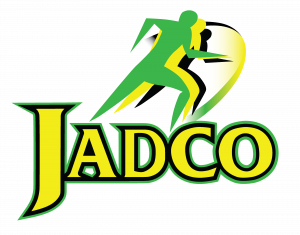
Development and Reform of Legislation
The Government of Jamaica adopted the World Anti-Doping Programme and the World Anti-Doping Code on November 17, 2003. Following this, Jamaica became the 97th signatory state to the Copenhagen Declaration on Anti-Doping in Sport on February 10, 2004. After this historic signing, an interim committee was created and the work of the anti-doping programme operated as a project under the Ministry of Sports. The primary responsibilities of the committee were to develop the anti-doping in sport policy framework and to ensure the finalisation of the drafting of the Anti-Doping in Sport Act.
On July 25, 2008, the Government of Jamaica passed the Anti-Doping in Sport Act. The Act established four independent bodies, the Jamaica Anti-Doping Commission (JADCO), the JADCO Therapeutic Use Exemption Committee (TUEC), which was appointed by the Commissioners (now the Board of Directors), the Jamaica Anti-Doping Disciplinary Panel and the Jamaica Anti-Doping Appeals Tribunal, which were appointed by the Minister of Sport.
On December 23, 2014, the Government of Jamaica enacted the Anti-Doping in Sport Act of 2014, which came into effect on January 1, 2015. The revision of the Anti-Doping in Sport Act in 2014 changed the names of the Disciplinary Panel and Appeals Tribunal to the Independent Anti-Doping Disciplinary Panel and the Anti-Doping Appeal Tribunal respectively.
As specified in the Anti-Doping in Sport Act (2014), the Independent Anti-Doping Disciplinary Panel consists of nine (9) members and the Anti-Doping Appeals Tribunal consists of seven (7) members. Both panels are appointed by the Minister with responsibility for sport.
Establishment of Jamaica Anti-Doping Commission as an Independent Body
The Jamaica Anti-Doping Commission was formally established in 2008 to execute the national anti-doping programme, in accordance with the standards stipulated by the international governing body, the World Anti-Doping Agency (WADA).
The Jamaica Anti-Doping Commission is responsible for ensuring that all athletes comply with the World Anti-Doping Code, which is the document that harmonises regulations regarding anti-doping across all sport and all countries of the world.
The main functions of Jamaica Anti-Doping Commission include:
- Deterrence of doping through communication and education initiatives
- Detection of doping through testing activities and investigations
- Enforcement of anti-doping rules, by presenting cases of possible Anti-Doping Rule Violations (ADRVs) to the Independent Anti-Doping Disciplinary Panel.
The Jamaica Anti-Doping Commission is funded by the Government of Jamaica and is guided by the Anti-Doping in Sport Act of 2014, the World Anti- Doping Agency Code and the 2015 JADCO Rules. Since its inception, the Jamaica Anti-Doping Commission has undergone several changes from being an interim committee to a fully established body with direct oversight for anti-doping in sport. The Jamaica Anti-Doping Commission has had several Executive Directors beginning with former Project Director, Dr. Patrece Charles-Freeman. Dr. Freeman was selected to head the project committee out of the Ministry of Information, Youth and Culture in February 2008 and later transitioned to the position of Executive Director with a cadre of eleven (11) officers to execute the mandate of the organisation. Since inception there have been changes in the leadership of the Jamaica Anti-Doping Commission.
Below are the names and tenure of past and present Executive Directors:
- Patrece Charles-Freeman- 2008-2011
- Florette Blackwood (interim)- 2011-2012
- Renee-Anne Shirley – 2012-2013
- Cathy Rattray Samuels (interim)- 2013
- Carey Brown – 2013- 2017
- June Spence-Jarrett, J.P. – 2018 – present
The Board of Directors is responsible for appointing an Executive Director, who oversees four divisions: Human Resource Management and Administration, Finance and Accounts, Technical Services and Communication and Education. Subject to the provision of the Anti-Doping in Sport Act the Board of Directors is appointed by the Minister with responsibility for Sport and is responsible for the policy, strategic direction and governance of the Commission.
Below are the names of the Chairmen of the Board since inception:
- The Hon. Errol Morrison -2008-2009
- Alexander Williams, Attorney-At-Law -2009-2011
- Herbert G. Elliot, CD, MD, MPH, BSC – 2011-2013
- The Hon. R. Danny Williams, CD,OJ-2014 -2016
- Alexander Williams, Attorney-At-Law – 2016- present
The main function of the Commission is to test and educate athletes as well as to educate athletes support personnel. Initially the Commission conducted over one hundred (100) tests per year. These tests were conducted by Doping Control Officers (DCO) who were mainly doctors. Prior to 2015, blood collection was not a part of the sample collection process, but in order to remain compliant with the International Standards of WADA, blood collection was introduced. Today, the Commission carries out blood collection sessions in collaboration with Central Medical Laboratories Limited, a reputable phlebotomy company in Jamaica. Presently our target is five hundred (500) tests per year, four hundred (400) urine and one hundred (100) blood.
In the initial stages, workshops were conducted on a small scale, but over the years these workshops have expanded to include sessions with all sporting associations, federations, professional groups and tertiary and secondary institutions.
As the mandate of the Commission evolved, reviews of the organisational structure were done to facilitate effective and efficient service delivery. New posts were added and existing posts were reclassified and re-titled. Today, the Commission has a cadre of professional staff who work assiduously to fulfil the mandate of the organisation.



